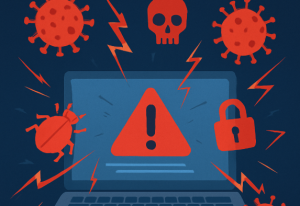Data Privacy & Security in Shared Service Centers | ANSR
Published on
In an interconnected and data-driven world, safeguarding sensitive information is paramount for businesses and their customers. Shared Service Centers (SSCs), which handle vast amounts of confidential data, play a critical role in maintaining data privacy and security. As guardians of sensitive information, SSCs must uphold the highest standards of confidentiality and trust policies. In this blog, we delve into the significance of data privacy and security in SSCs and the cybersecurity measures they take to protect valuable information.
The Importance of Data Privacy and Security in SSCs
Data privacy and security are of utmost importance for SSCs due to the nature of their business operations. These centers handle a wide range of critical data, including financial records, employee information, customer data, and proprietary business insights. Breaches in data privacy and its security not only compromise an organization’s reputation and trust but also expose them to legal and financial repercussions.
Legal and Regulatory Compliance: Navigating the Data Protection Landscape
SSCs must adhere to an ever-evolving landscape of data protection and encryption laws and regulations. Compliance with laws such as the General Data Protection Regulation (GDPR) in Europe, the California Consumer Privacy Act (CCPA) in the United States, and other regional data privacy regulations is non-negotiable. SSCs invest in resources, measures, and expertise to ensure strict adherence to these regulations.
Comprehensive Data Protection Policies: Building a Strong Foundation
To safeguard data, SSCs establish comprehensive data protection policies that govern the handling, processing, and storage of information. These policies include access controls, data encryption measures, and data retention protocols among other global services. Regular training and awareness programs educate employees about the importance of data privacy and security, promoting a culture of responsibility and vigilance.
Robust Cybersecurity Measures: Fortifying the Defenses with Efficient Services
In an era where cyber threats are becoming increasingly sophisticated, SSCs invest heavily in robust cybersecurity measures, and adhere to strict data protection policies. These include state-of-the-art firewalls, intrusion detection systems, and anti-malware solutions. Regular security audits and vulnerability assessments help identify and rectify potential weaknesses before they can be exploited.
Data Minimization and Encryption: Limiting Exposure and Protecting Data
SSCs adopt the principle of data minimization, collecting only the data necessary for their functions. Reducing the amount of stored data limits the exposure of sensitive information. Additionally, data encryption ensures that even if data is intercepted, it remains encoded, unreadable and secure.
Employee Training and Awareness: Fostering a Security-Conscious Culture
Employees are a crucial line of defense against data breaches. SSCs invest in continuous training and awareness programs to educate employees about cybersecurity best practices, social engineering risks, and the significance of handling data responsibly. Employees are encouraged to report suspicious activities promptly.
Incident Response and Contingency Planning: Preparing for the Unexpected
SSCs develop robust incident response and contingency plans to address data breaches effectively. In the event of a breach, quick and decisive action is crucial. Having predefined response protocols and policies ensures that SSCs can act swiftly, minimize damage, and maintain transparency with stakeholders.
Third-Party Risk Management: Ensuring Trust in Vendor Relationships
SSCs often collaborate with external vendors and partners. Protecting data privacy and its extends to these relationships as well. Thorough vetting and regular assessments of third-party vendors help ensure that data entrusted to them is handled with the same level of care and security.
Conclusion: Safeguarding Confidentiality and Trust
Data privacy and security are fundamental pillars in the operations of Shared Service Centers. The responsibility of protecting valuable information entrusted to SSCs rests on their ability to implement comprehensive policies, and measures, invest in state-of-the-art cybersecurity, and foster a security-conscious culture among employees with the highest-quality services. By upholding the highest standards of confidentiality and trust, SSCs become true guardians of data privacy and security, inspiring confidence in their clients and contributing to the long-term success of the organizations they serve.




